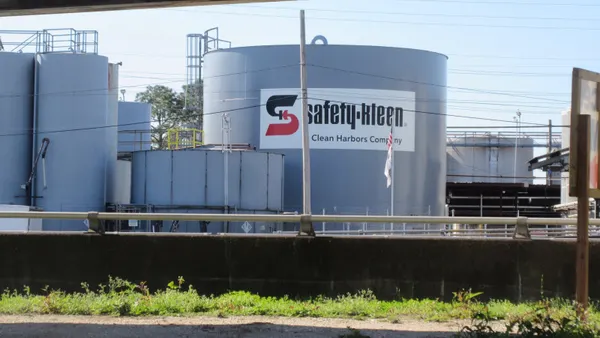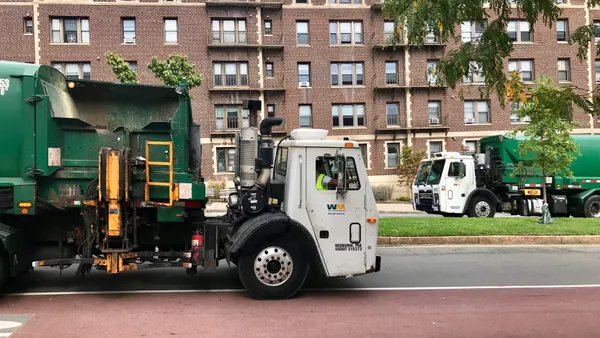Dive Brief:
- The D.C. Circuit Court of Appeals will hear oral arguments on Monday in Utility Solid Waste Activities Group v. EPA, a case which has opened a path for the federal agency to reconsider portions of coal ash regulations passed by the Obama administration in 2014.
- This week, the U.S. Environmental Protection Agency sent a list to the court of 16 provisions that "are or are likely to be reconsidered by the Agency," including regulations covering inactive surface impoundments.
- The rule created requirements and standards for Coal Combustion Residuals (CCR) management, but stopped short of classifying coal ash as hazardous waste.
Dive Insight:
The EPA's filing this week lists portions of the CCR rule that could be reconsidered, a move which conservationists said amounted to a roadmap for dismantling necessary environmental protections.
"EPA's imminent 'reconsideration' of the coal ash rule means only one thing, EPA is again turning its back on public health and safety and siding with the polluters," Earthjustice Senior Administrative Counsel Lisa Evans said in a statement. "The EPA's status report is just another example of Agency policy to kowtow to corporate interests."
The filing lists 16 areas for reconsidering, including six that are not before the court. Those include: whether to allow modification of post-closure care periods; whether to allow CCR to be used to close surface impoundments
subject to mandated closure; and whether to suspend groundwater monitoring requirements where a demonstration of "no migration" is made.
In a filing from May, the Utility Solid Waste Activities Group said approaching compliance deadlines are forcing companies to make "irreversible and tremendously significant long-term business and operational decisions," including pulling coal plants offline.
According to Earthjustice, there are more than 1,400 coal ash sites in the United States, and in at least 200 cases, they say coal residual waste contaminated water sources.
The Dan River coal ash spill is possibly the most high-profile the most high-profile disaster, which led in part to the rule. Duke Energy is facing $6 million in fines as it seeks to recover its cleanup costs from ratepayers.














